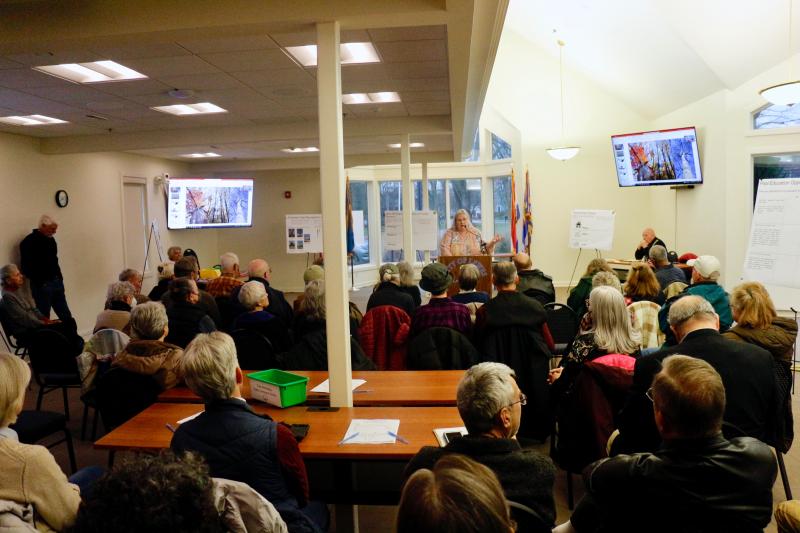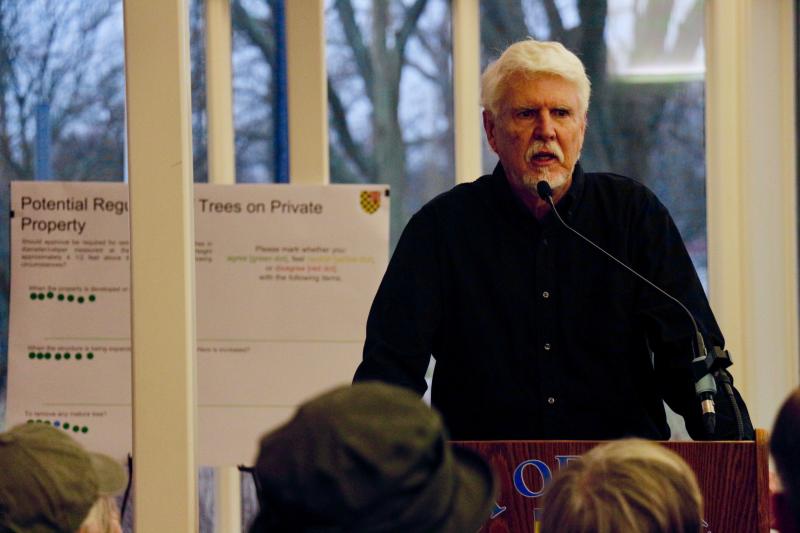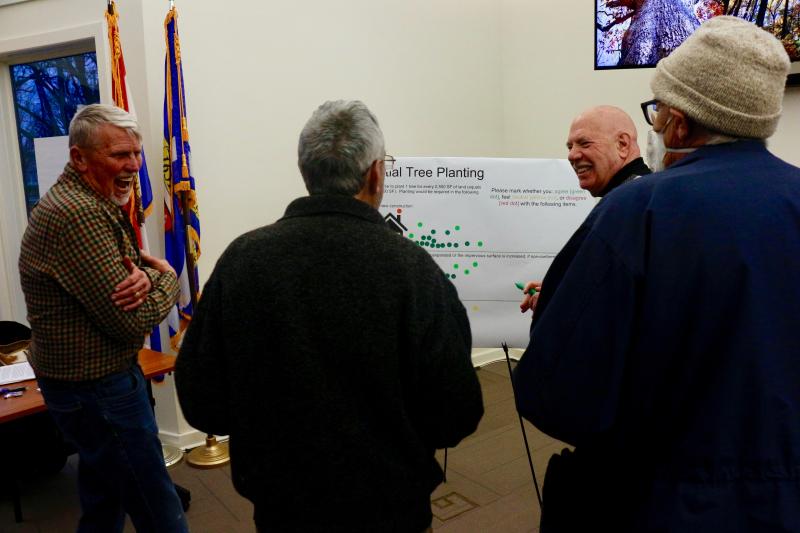If those who attended Lewes’ tree workshop Jan. 19 accurately represent Lewes residents, new regulations regarding trees, if adopted, will be welcomed.
Most participants were in favor of implementing programs to protect qualifying trees and grow the city’s tree canopy.
Tree Ordinance Subcommittee Chair Debra Evalds kicked off the meeting by explaining the group’s research. She encouraged ideas from the crowd, believing the public has a wealth of knowledge to share and there is a main objective to accomplish.
“The big idea is protecting and growing the Lewes tree canopy,” Evalds said. “It is incredibly important to preservation and the quality of life. It’s measurable and is already an existing goal for the City of Lewes.”
In 2021, Lewes adopted a resolution to grow the tree canopy to 38% over the next 10 years. With its current measurement at 34.2%, workshop attendees said the city should protect and expand the tree canopy. Jeff White, senior fellow for land and biodiversity management at the Delaware Nature Society, discussed the importance of trees and the canopy.
White displayed forest coverage maps detailing sprawling forest throughout North America that existed prior to European arrival. About 100 years ago and up until about the 1960s, few canopies had noticeable coverage in the northeastern United States, White said.
Luckily, the forests started to grow again around the mid-20th century, but White said those trees have begun to age out or were infected with disease. Replacing and continuing to grow canopies is something White said he believes is critical to the health of Delaware ecosystems.
According to White, there are some trees that can contain hundreds of species of caterpillars, a food source for all types of birds. Parent chickadees, for example, provide their nestlings with a caterpillar every three minutes during fledging. During an 18-day period, 6,000 to 9,000 caterpillars are needed for a chickadee family.
Forested areas not only provide a habitat for chickadees and other rare birds, they are also home to endangered species like the Eastern tiger salamander, the Delaware corn snake, the barking tree frog, the big brown bat and the Delmarva fox squirrel. White admitted those creatures might not rely on backyard trees unless they are near the forest or wetlands, but their presence contributes to the health of ecosystems. He also said he would prefer his backyard to resemble something closer to a maritime forest if he lived in Lewes.
White said the positive effects of a healthy, functioning forest are cultural, ecological, social and economical. In addition to shade, trees play an important role in stormwater management. Planting the right tree in the right place, such as a bald cypress near water, can help with mitigating the amount of water that inundates an area. A diagram depicting precipitation falling on a mature tree showed how water cycles through a variety of ways. Water that falls to the ground either evaporates or infiltrates. Stem flow, water filtered through the inside of the tree, helps in mitigating the amount of water that runs off and onto impervious surfaces.
Following the introductory presentation, workshop attendees visited various stations to engage with subcommittee members and others. Ideas receiving the most opposition were requiring permission to remove any mature tree and requiring permission to remove trees during additions. Only one attendee opposed protections during new construction. The majority of people were in favor of every question asked at stations.
Most people in attendance favored the three topics proposed for education: right tree, right place; how to plant a tree; and how to care for a tree. In regard to a potential tree-recognition program, Marylinda Maddi handled quite a few questions about how that might look. Three people were against any kind of program and three felt neutral about the issue, but 24 people believed it would be a positive step for Lewes.
Educational materials and the presentation are available at ci.lewes.de.us/1387/Tree-Workshop. The public comment period remains open until Sunday, Feb. 19.
Aaron Mushrush joined the sports team in Summer 2023 to help cover the emerging youth athletics scene in the Cape Region. After lettering in soccer and lacrosse at Sussex Tech, he played lacrosse at Division III Eastern University in St. David's, PA. Aaron coached lacrosse at Sussex Tech in 2009 and 2011. Post-collegiately, Mush played in the Eastern Shore Summer Lacrosse League for Blue Bird Tavern and Saltwater Lacrosse. He competed in several tournaments for the Shamrocks Lacrosse Club, which blossomed into the Maryland Lacrosse League (MDLL). Aaron interned at the Coastal Point before becoming assistant director at WMDT-TV 47 ABC in 2017 and eventually assignment editor in 2018.

























































